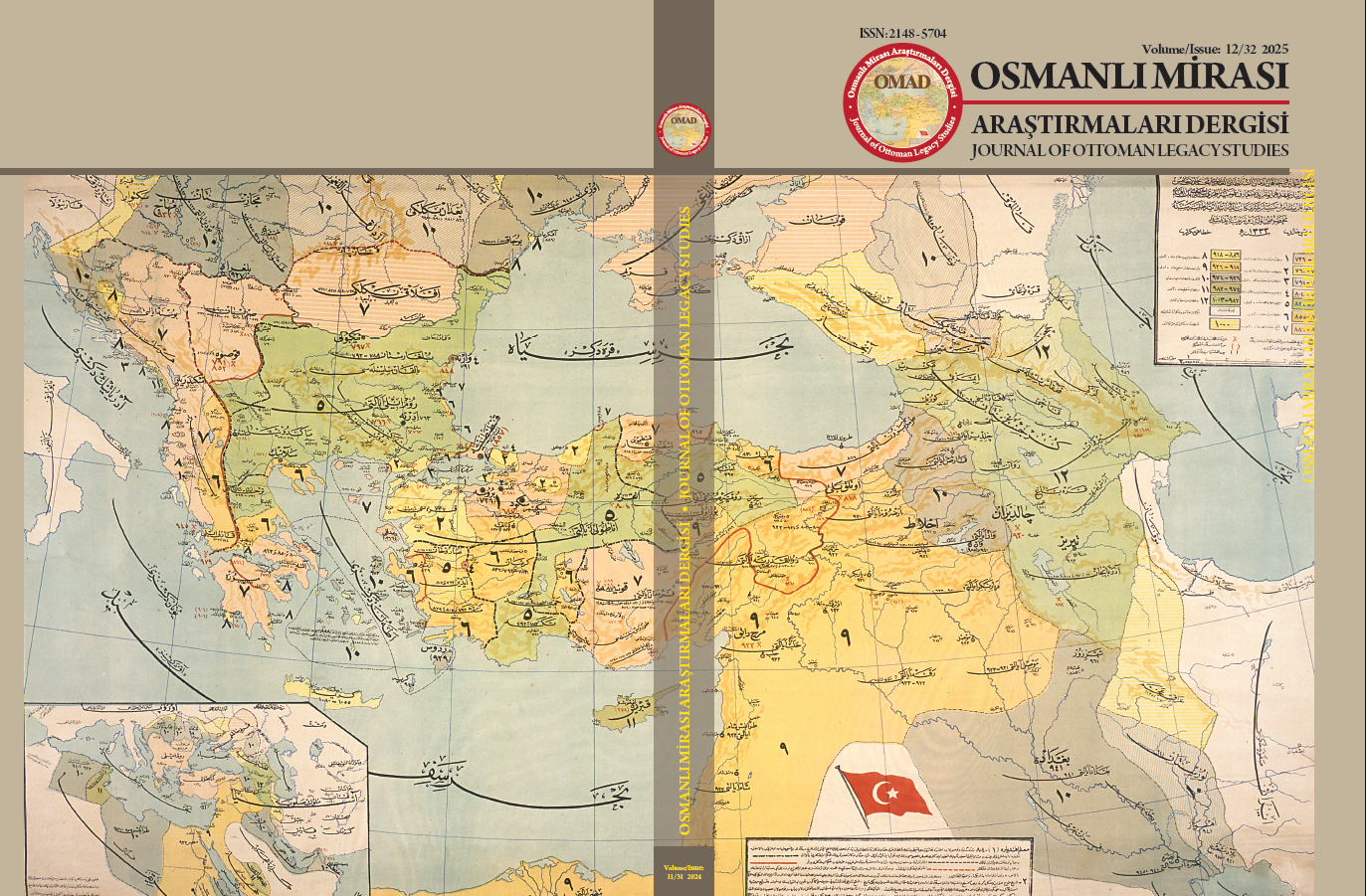Sufi Practices and Urban Spaces: Everyday Experiences of Sheikh Ken’ân Rifâî (1867-1950) in the Late Ottoman Istanbul
Sufi Pratikleri ve Şehir Mekânları: Geç Dönem Osmanlı İstanbul’unda Şeyh Ken’an Rifâî’nin (1867-1950) Gündelik Yaşam Pratikleri
DOI:
https://doi.org/10.17822/omad.1557257Keywords:
Late Ottoman, Ottoman Modernization, Dual Cultural Orientation, Sufism, Ken‘ān Rifā‘ī, Ummu Ken’ân Lodge, Everday life studiesAbstract
This historical study investigates the methods and approaches utilized by Ken’ân Rifâî (1867-1950) to manage the social demands and complexities of Late Ottoman society by concentrating on his various roles as a Sufi sheikh and bureaucrat within the perceived conflicted urban spaces of office and the conventional sufi lodge institution through the everyday life studies perspectives. Examining his daily routines and practices in Istanbul during the Second Constitutional Era (1908-1918), this research accentuates his nuanced synthesis, mirrored his selective adoption amidst the confluence of Western and conventional components. The main objective of our inquiry is to explore how Rifâî has effectively integrated administrative ethos and Sufi principles within the involved socio- spatial setting of the early 20th-century Ottoman capital. As focal points of spiritual and cultural activity, his Sufi lodge (Ummu Ken’ân dergâhı) and his mansion (konak) depict his endeavors to reconcile sufi customs with contemporary developments and thus have served as a microcosm of broader social changes in urban life. By delving into the ordinary moments of Rifâî’s life, we see a man who adeptly navigated his era’s challenges, integrating traditional wisdom with modern pragmatism while utilizing everyday practices to negotiate his position within a rapidly changing society








